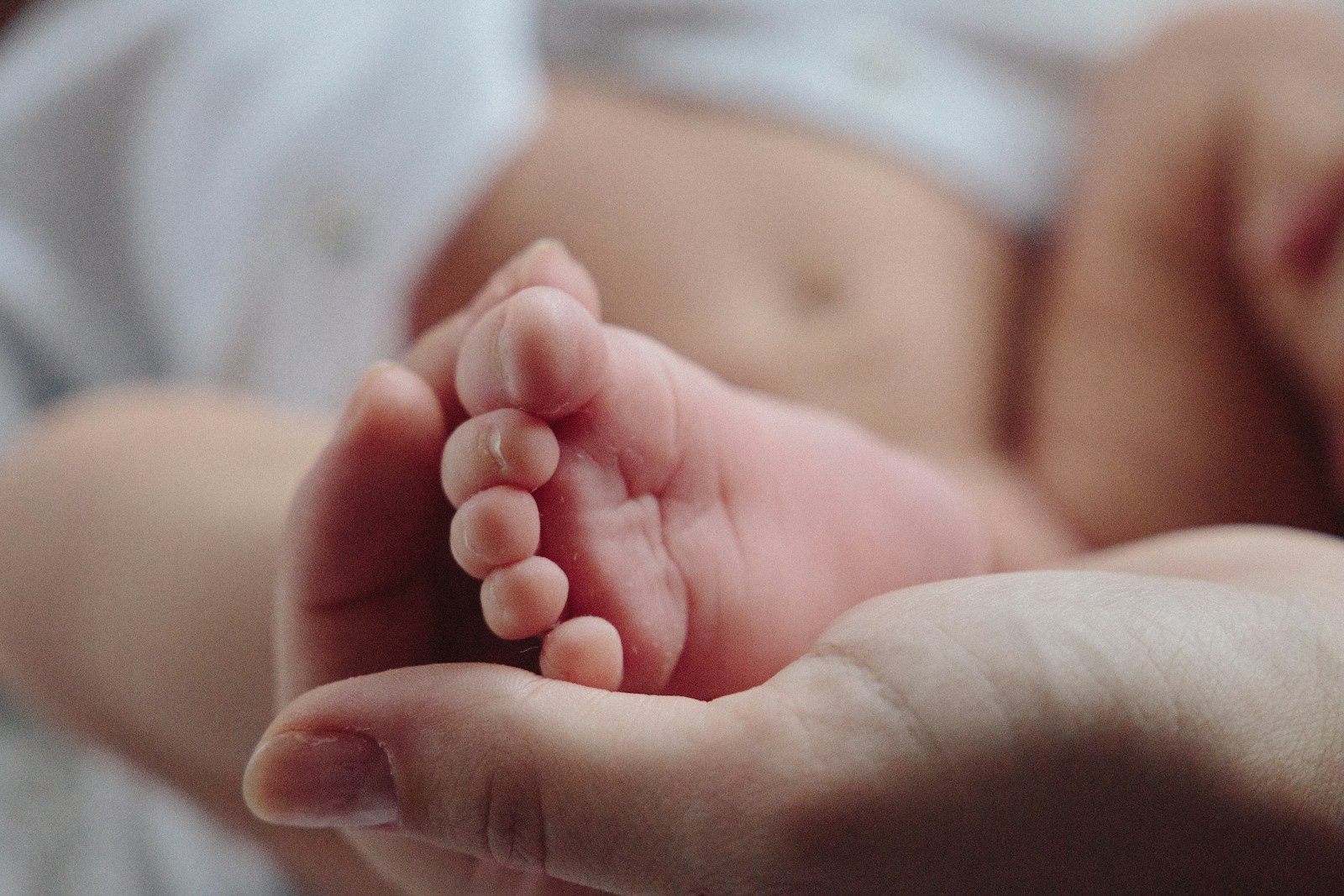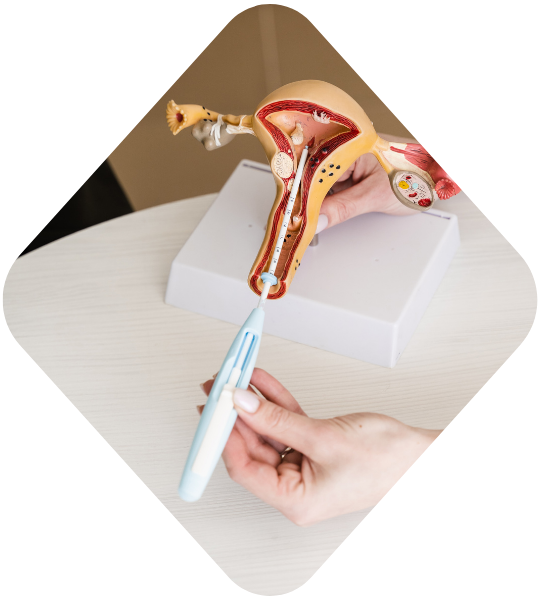IUI Treatment
At Eva IVF & Women’s Centre, we understand that struggling with infertility can be emotionally challenging. If you and your partner have been trying to conceive without success, Intrauterine Insemination (IUI) could be a simple, effective, and minimally invasive fertility treatment to help you achieve pregnancy. This guide will walk you through the complete IUI treatment process, from preparation to post-procedure care, so you know exactly what to expect.
What is IUI and How Does It Work?
Intrauterine Insemination (IUI) is a fertility treatment where washed and concentrated sperm is directly placed inside the uterus using a fine catheter. This process bypasses natural barriers, ensuring that a higher number of healthy sperm reach the egg, increasing the chances of fertilization.
Who is IUI for?
IUI is an effective option for:
✔ Women with unexplained infertility
✔ Women with mild endometriosis or cervical mucus issues
✔ Men with low sperm count or motility
✔ Couples experiencing sexual dysfunction preventing intercourse
✔ Women using donor sperm
If you have blocked fallopian tubes, severe male infertility, or advanced age-related infertility, IVF may be a better option.
Step-by-Step IUI Treatment Process
Before starting IUI, our fertility specialist will:
✔ Conduct a comprehensive medical evaluation for both partners
✔ Perform blood tests and ultrasounds to assess ovulation and uterine health
✔ Conduct a semen analysis to check sperm count, motility, and morphology
💡 If sperm parameters are too low, we may recommend IVF instead of IUI.
UI is most successful when performed during ovulation. There are two ways to track ovulation:
🔹 Natural Cycle IUI: If you have regular ovulation, no medications are needed. We track your cycle and schedule the IUI when ovulation naturally occurs.
🔹 Medicated IUI: If you have irregular ovulation (PCOS, hormonal issues), we use fertility drugs like:
- Clomiphene Citrate (Clomid) or Letrozole (Femara) – Stimulate egg development
- Gonadotropin Injections (FSH, hCG) – Trigger ovulation if needed
We track follicle development using:
✔ Transvaginal ultrasounds to monitor egg growth
✔ Hormone blood tests to measure estrogen and LH levelsOnce the follicle reaches 18-22mm, an hCG injection (trigger shot) is given to stimulate ovulation within 24-36 hours.
On the day of IUI, the male partner provides a semen sample, or we use donor sperm if needed. The sperm is then "washed" in the lab to:
✔ Remove impurities and non-motile sperm
✔ Concentrate the most active, high-quality sperm
✔ Increase the chances of fertilization
Unwashed semen contains proteins and prostaglandins that can cause uterine contractions, making insemination less effective or even painful.
Timing: The IUI is performed 24-36 hours after ovulation trigger to ensure the sperm meets the egg at the optimal time.
Procedure Steps:
✔ The woman lies on the exam table, similar to a Pap smear.
✔ A thin, soft catheter is inserted into the uterus through the cervix.
✔ The washed sperm sample is injected directly into the uterus.
✔ The procedure takes 5-10 minutes and is completely painless (some mild cramping may occur).
After the procedure: You will rest for 10-15 minutes before resuming normal activities.
Before IUI – How to Prepare?
✔ Maintain a healthy weight to optimize fertility
✔ Take prenatal vitamins & folic acid for egg health
✔ Avoid alcohol, smoking, and excessive caffeine
✔ Reduce stress with yoga, meditation, or light exercise
Immediate Post-IUI Care
✔ Avoid vigorous exercise, heavy lifting, or sexual intercourse for 48 hours.
✔ Mild spotting or cramping is normal after the procedure.
✔ Continue taking prenatal vitamins and progesterone supplements (if prescribed).
Key Aspects of Mental Health & Wellness
Mental health and wellness refer to a person’s emotional, psychological, and social well-being. It affects how individuals think, feel, and behave in daily life, as well as how they handle stress, relate to others, and make decisions. Good mental health enables people to cope with challenges, maintain relationships, and function effectively in work and personal life.
Lorem ipsum dolor sit amet, consectetur adipiscing elit. Ut elit tellus, luctus nec ullamcorper mattis, pulvinar dapibus leo.
Emotional Well-being
The ability to manage emotions, such as stress, anxiety, sadness.
Cognitive Health
Maintaining clarity in thinking, decision making, and problem-solving.
Social Wellness
Building and maintaining positive the relationships with family, friends
Resilience & Coping Skills
The ability to adapt to challenges, setbacks, and life changes.
Mental health is a vital aspect of overall well-being
We think, feel, and interact with the world around us. It encompasses emotional, psychological, and social wellness, helping individuals cope with stress, build relationships, a make decisions. Prioritizing mental health involves self-care, mindfulness, an seeking support when needed, whether through therapy, counseling, or lifestyle changes. Just like physical health, maintaining mental well-being is essential
We provide counseling, therapy, stress management programs, psychiatric evaluations, medication management, mindfulness training, and wellness programs
We provide counseling, therapy, stress management programs, psychiatric evaluations, medication management, mindfulness training, and wellness programs
We provide counseling, therapy, stress management programs, psychiatric evaluations, medication management, mindfulness training, and wellness programs
We provide counseling, therapy, stress management programs, psychiatric evaluations, medication management, mindfulness training, and wellness programs
When to Take a Pregnancy Test?
- A blood pregnancy test (beta HCG) is taken 14 days after IUI to check for pregnancy.
- Avoid early home pregnancy tests, as trigger shot hormones may cause false positives.
Success Rates of IUI – What Are Your Chances?
The success of IUI depends on age, egg quality, sperm quality, and underlying fertility conditions.
📊 IUI Success Rates Per Cycle:
- 10-15% per cycle for women under 35
- 7-10% per cycle for women aged 35-40
- Less than 5% per cycle for women over 40
✔ If IUI is unsuccessful after 3-6 cycles, we may suggest IVF for better chances.
Why Choose Eva IVF & Women’s Centre for IUI?
🌟 Expert Fertility Specialists with years of experience
🌟 Advanced Sperm Washing & IUI Techniques
🌟 Affordable & Personalized Treatment Plans
🌟 High Success Rates with Individualized Care
At Eva IVF, we are committed to making your IUI journey smooth, stress-free, and successful.

